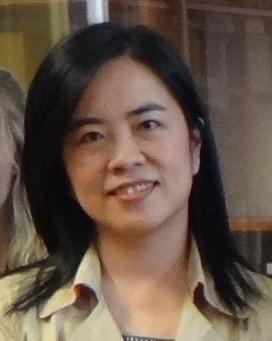Dr. Shaw-Yu Pan

Fellow in the project "Epochal Lifeworlds: Narratives of Crisis and Change"
Short Biography
Shaw-Yu Pan is an associate professor of Chinese literature at National Taiwan University (NTU). She received both her MA and PhD degrees from the Department of Chinese Literature, NTU, during which time she obtained another MA in Comparative Literature from University College London and a Fulbright Visiting Fellowship for her research at the EALC, Harvard University (2005-2006). She worked as a post-doctoral researcher in the Institute of Chinese Literature and Philosophy, Academia Sinica (2009-2010).
Her research field centers around translation studies, literature and popular culture from late Qing and early Republican periods. She began with the studying of representative Chinese translators in early twentieth century, such as Lin Shu and Zhou Shoujuan, and expanded to the modern discourses and practices of romantic love in China, for example, the writing and distributing of love letters. She has also examined cases of the complex relationship between Victorian popular literature and Chinese literature.
Her recent research project focuses on the writings and translations of late-Qing science fiction, especially their interactions with Western astronomy, imperialism, and/or other disciplines.
Project
Colonizing the Stars: Malthusian Theory of Population and Imperial Imagination in Late Qing Science FictionIt is acknowledged that Western science fiction, as a genre that embodies imperial ideology and accordingly strengthen its power, combines scientific discourse and imagination of empire. A similar literary phenomenon occurred in late Qing period, while Chinese writers appropriated Western ideas and literature to create their fantasies. In their works, one can also witness the complex dialogues among science, empire, and imperialism. For example, the late Qing science fiction such as Xu Zhiyan’s 許指嚴 (1875-1923) Dian shijie 電世界 (Electrical world, 1909) and Lu Shi’e’s 陸士諤 (1878-1944) Xin yesou puyan 新野叟曝言 (New humble words of a rustic elder, 1909) not only depicted the future China as a technologically advanced utopia, but also indicated that the dramatic increase of population would lead to intense competitions for survival. Apparently inspired by the British economist Thomas Malthus (1766-1834) among others, Xu and Lu considered the problem of overpopulation as one of the major causes of imperial expansion. In order to solve the crisis, colonization must be introduced. Comparing to the historical context of European imperialism and the fact that late Qing China was intimidated by foreign powers, these works had represented rather intriguing parallel universes. Xu and Lu parodied the birth of an empire and its colonies in the ocean or planets and reversed the tragic fate of China. This project will take Malthus’ demography as the starting point to investigate the representation of the problem of overpopulation and imagination of empire in late Qing science fiction. By contrasting Xu’s and Lu’s works with translated texts during late Qing period, I will explore the relationship between the 19th century scientific/imperial discourse and Chinese literature.
